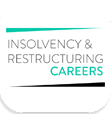As 2024 winds down, professionals across the board are contemplating their next career moves. For those in insolvency or accountancy eyeing a fresh start in 2025, the question is: when is the ideal time to start the job search process? In this post, we will delve into why starting now, rather than later, could set you on a smoother path to your dream job.
Understanding Your Career Aspirations: The first step in any job search is introspection. What are your career goals? What kind of work environment do you thrive in? These are crucial questions to ask yourself. When you initiate the process early, you give yourself ample time to align your aspirations with potentially suitable opportunities. Engaging with a recruitment specialist quickly translates to a quicker understanding of your career goals and aspirations, which is a significant first step in the journey.
Identifying the right opportunities: The job market is ever-evolving, and opportunities come and go. By starting your search now, you place yourself in an advantageous position to tap into the current market’s offerings. Our role as recruiters is to identify potential opportunities that align with your career aspirations, and doing this early ensures you don’t miss out on any gems in the market.
The Interview Process: Securing interviews is a crucial part of the job search. The sooner you begin, the quicker you can find yourself in the interview chair, discussing your potential future with a prospective employer. This step is not just about impressing the interviewer; it’s a chance for you to assess whether the role and company align with your career goals.
Securing and Negotiating Offers: Negotiating an offer is an art. When you have ample time on your side, you’re in a better position to evaluate and negotiate offers. This ensures that when you do accept an offer, it’s the right one for you.
Considering Notice Periods: Notice periods are integral to the job change process. Depending on your current role’s requirements, this could range from a few weeks to several months. By starting early, you give yourself, and your future employer, the flexibility to work with these timelines, ensuring a smooth transition.
The Early Bird Catches the Worm: There’s a saying, “Don’t put off until tomorrow what you can do today.” This rings especially true in job searching. The early bird catches the best opportunities. Starting now means you’re proactive, engaged, and ready for what the future holds.
Navigating the New Year Rush: January is traditionally a busy time for both candidates and clients. Candidates are looking for new opportunities, and clients are returning to the office, ready to kickstart the year. However, this can also mean that the market is saturated, and the competition is fierce. By starting your search now, you navigate around this rush, placing yourself ahead of the curve.
The Pros of Starting Now:
- Access to Current Opportunities: The job market is ripe with opportunities right now. By starting your search, you ensure that you have access to these roles, many of which might be filled come the New Year.
- Extra Time for Job Searching: The end of the year can be slower for some industries, providing you with extra time to dedicate to your job search.
- Potential for an Early Start: Depending on notice periods and how quickly you secure a role, you could potentially start your new position before the year ends, giving you a head start on 2025.
The Cons:
- Potential for Rush Decisions: Starting early is beneficial, but it’s also important not to rush. Ensure that any decision made is well thought out and right for your career.
- Navigating Holiday Schedules: The end of the year is filled with holidays, which can mean that key decision-makers are out of the office. This could potentially slow down the process.
In the competitive world of insolvency and accountancy, timing is everything. Starting your job search now positions you ahead of the curve, providing access to opportunities that might not be available in the New Year rush. It gives you the time to navigate the process, from understanding your career aspirations to negotiating offers, ensuring that when you do make a move, it’s the right one for you. Are you ready to take the leap and start afresh in 2025? The time is now.
If you’re contemplating a career move and are open to discussing your options or want to get a feel of the market (now or further into 2025), I’m here for a straightforward, commitment-free chat. Send me an email at slowes@levitaterecruitment.com to arrange a call.
My views are based on my 17 years+ of recruiting for Accountancy Practice and Insolvency professionals.
For advice about your career options, speak to Scott Lowes at Levitate Recruitment, specialists in placing practice-trained accountants and insolvency professionals across the UK, and find the right role to suit your ambitions.













